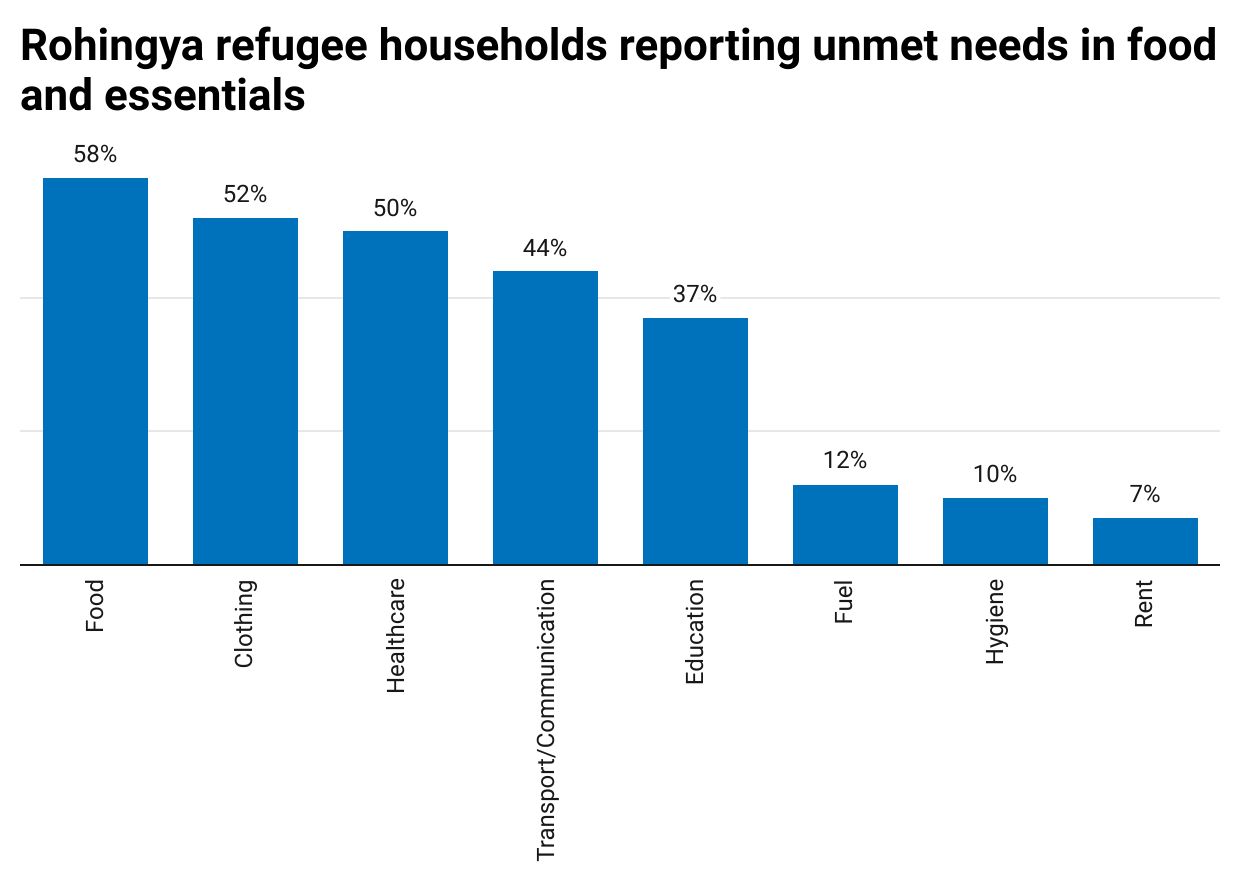By UNHCR Division of Resilience and Solutions, Analytics and Research Unit

More than half of Rohingya refugees (68 percent) living in Cox’s Bazar face shortages in food and essentials even after receiving humanitarian assistance. This includes households with refugees who earn income from in-camp volunteer programmes and cash-for-work activities sanctioned by the government; they tend to spend all their income on their family and just under 10 percent manage to save part of their income.
According to the findings of a UNHCR-Yale survey published in June 2022, food, clothing, and healthcare are the largest unmet needs among refugees. The median monthly amount spent on food is the highest at BDT 3,000; yet food remains an unmet need for 58 percent of households and a third of respondents report not having up to three meals per day. Underlining the poor nutritional content of their diet, over one in four households did not consume meat, fish, or chicken, and two out of three households did not consume eggs the day before the survey.
The UNHCR-Yale study further discusses two income-generating programmes sponsored by humanitarian actors — in-camp volunteer programmes and cash-for-work activities — that make up the majority of income opportunities for Rohingya refugees and allow for households to meet a portion of their otherwise unmet needs. As it stands, the average income of refugees is below the Minimum Expenditure Basket and 88 percent of Rohingya refugee households report spending all their monthly earnings on their family with no ability to save. Refugee households are thus highly fragile when it comes to their ability to meet basic needs, and even more should a shock arise. The UNHCR-Yale study sample included some 93 percent of households with at least one income earner in the last three months, 87 percent of whom participate in either cash-for-work or volunteer schemes.
Read or download the full UNHCR-Yale study here.
